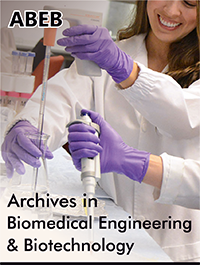 Research Article
Research Article
Antimicrobial Potential of Plant Extracts from the Pitangui-Mg Region, Brazil
Parreira AG1*, Azevedo EJC2, Pereira FR3, Ferreira LVS3 and Azevedo RS3
1University of the State of Minas Gerais, Divinopolis MG Unit and Federal University of Sao Joao Del Rei Campus CCO, Brazil
2Department of Agricultural Research Company of Minas Gerais, Pitangui MG, Brazil
3University of the State of Minas Gerais, Divinópolis MG Unit, Brazil
Parreira AG, University of the State of Minas Gerais, Divinopolis MG Unit and Federal University of Sao Joao Del Rei Campus CCO, Brazil.
Received Date: May 25, 2019; Published Date: June 04, 2019
Abstract
Brazil is recognized at worldwide as one of the largest holders of biodiversity on planet, possessing more than 20% of all plant species in the world, with countless of them presenting great medicinal potential. The medicinal plants use throughout the world has reached very significant economic figures, although its usage in folk medicine has been recognized for hundreds of years in different regions of the planet. The aims of this work were to evaluate the antimicrobial potential of plant extracts of Cerrado and Atlantic Forest specimens that occurs at Pitangui City region in Minas Gerais state with emphasis on those with regional folk medicine reports. The plant material used were leaves obtained from specimens collected at EPAMIG Pitangui Experimental Fields and-Technical Institute of Agriculture and Cooperatives. The extracts obtained were submitted to experiments in Petri dishes and to the diffusion disc technique to determine their antimicrobial action through the inhibition zone. For evaluation of plant extracts effects on bacterial isolates and fungal isolate growth, it was possible to see a large responses variation in a scenario of speciesspecific dependence amid the tendency of slight decrease in the Inhibitory effect for aqueous extracts. An average increase of 20% was observed in inhibition zone formation at the presence of ethanolic plant extract. For S. aureus, S. epidermidis and E. coli there was a higher number of leaf extracts in ethanolic solvent that inhibited the growth of those bacterial species, compared to the same plant extracts whose solvent was the aqueous. Exception for plant species, P. alata, in which leaf extracts only in aqueous solvent were effective against the species S. aureus and S. epidermidis. In both extracts, there was no antimicrobial effect detected for leaf extracts of B. forficata. The plant extracts that demonstrated greater amplitude of bacterial growth inhibition were. A. absinthium, S. cordifoliae, T. avellanedae, with emphasis on ethanolic extracts of these species. For fungal isolate tested, C. glabrata, there was no growth inhibition against any of plant extracts evaluated. Considering the species Baccharis retusa and Baccharis dracunculifolia, only ethanolic extracts were tested. Inhibition results were obtained for all organisms tested, except for Enterobacter cloacae in relation to ethanolic extract of B. dracunculifolia.
Keywords: Brazil medicinal plants; Bactericide potential; Bacteriostatic potential
-
Parreira AG, Azevedo EJC, Pereira FR, Ferreira LVS, Azevedo RS. Antimicrobial Potential of Plant Extracts from the Pitangui-Mg Region, Brazil. Arch Biomed Eng & Biotechnol. 1(5): 2019. ABEB.MS.ID.000524.
-

This work is licensed under a Creative Commons Attribution-NonCommercial 4.0 International License.






